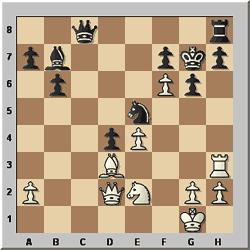We shall require tens of thousands of engineers and hundreds of thousands of overseers, mechanics and other technicians. The whole world is becoming more and more a world of trained people. They must be trained in mind, and have some vision and understanding of the world picture. Then they must be trained in particular jobs which they can do well, whether it be science or engineering or medicine or education. Such are the skills that will build India.
Jawaharlal Nehru, former Prime Minister of India. Excerpt from an address to the Inter-University Youth Festival, New Delhi, 1956.
The grand inter-schools chess championship tournament that will happen at the end of the year symbolizes the beginning of a new reality for the game, and by extension, the nation.
It is the first step in an exhilarating but challenging journey of a thousand miles which we have to travel over time for chess. And herein lies the championship’s deep significance. We are beginning an experiment that Russia embarked upon some fifty years ago, and England, Hungary, France, Bulgaria, the United States, Canada, China and India, among other countries, a bit more recently. These countries introduced chess into their school systems, and their societies all benefited socially and economically by doing so.
Sometimes it is necessary to create destiny. Sometimes destiny has to be shaped, and to be made by people who have the temerity to believe that they can bring about change through a certain medium.The question is will we allow ourselves to be shaped by events and history, or are we willing to act to shape them? All the countries mentioned above shaped their destinies in chess by studied, contrived methods. Let us take a look at China and India in today’s world.
China and India understood they could compete with the developed countries on a global scale. Added to that they had the populations to do so. The one resource they needed was skilled, educated workers. So they began schooling their kids earlier, longer, and introduced chess into the school system in an effort to place more emphasis on mathematics, science and technology. Students excelled in those areas like never before and the talented ones found the best jobs and realized they didn’t have to travel to North America to be successful or to have a decent life.
Today China and India are graduating four times the number of engineers that developed countries are graduating. University students from both countries have demonstrated that they are as talented as any of their counterparts in the developed world. In chess, China was locked out from the world and did not participate internationally for as far back as I can recall. Today, China has the Women’s world champion and a number of grandmasters. The school system has produced 13-year-old Hou Yifen, among others, a prodigy who is a sensation in the chess world. India has the current world chess champion, and the number two ranked woman player in the world.
Former Prime Minister Tony Blair has said that in this new arrangement of the world’s economies, “Talent is the 21st century’s wealth.” Barack Obama has argued that, “If you’ve got the skills, you’ve got the education, and you have the opportunity to upgrade and improve both, you’ll be able to compete and win anywhere. If not, the fall will be further and harder than it ever was before.”
It is clear that the students who learn and play chess in schools have not only learnt, and are playing a game. It is deeper than that. It is also very academically inclined. A number of Guyana scholars coming from Queen’s College were strong and serious chess players. China and India understood this kind of thinking. So instead of doing nothing they promoted the game in their schools, and today, they have succeeded in giving more of their young people a fighting chance for success in today’s competitive world. And this is what the Guyana Chess Federation is trying to do: emulate exactly what China and India have done, to have more engineers, mathematicians, and computer experts so that we can move from the periphery of technological change to centre circle, and play a more realistic part in the development of our country.
The inter-schools chess championship will be a landmark occasion for this nation.
Karjakin v Carlsen

Karjakin, Sergey (2732) – Carlsen, M
(2765)
Aerosvit Foros UKR (11), 19.6.2008
1.d4 Nf6 2.c4 g6 3.Nc3 d5 4.cxd5 Nxd5 5.e4 Nxc3 6.bxc3 Bg7 7.Bc4 c5 8.Ne2 Nc6 9.Be3 0-0 10.0-0 Na5 11.Bd3 b6 12.Qd2 e5 13.Bh6 exd4 14.Bxg7 Kxg7 15.cxd4 cxd4 16.Rac1 Bb7 17.f4 Rc8 18.Rxc8 Qxc8 19.f5 Nc6 20.Rf3 Ne5 21.Rh3 Rh8 22.f6+
Here Sergey offered Magnus a draw, which the latter rejected.The game continued: 22…Kg8 23.Qh6 Qf8 24.Qxf8+ Kxf8 25.Nxd4 Ke8 26.Bb5+ Kd8 27.Rc3 a6 28.Ba4 b5 29.Bb3 Re8 . The position has become a bit
complicated, so at this stage both players agreed to a
draw . ½-½.





